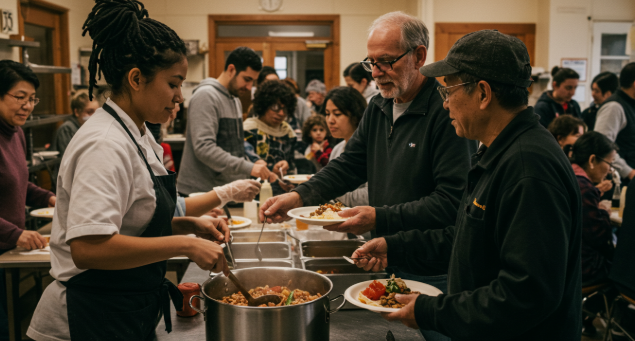Helping Others

A Path to Compassion and Community
In every society, there are individuals and families who face challenges that make daily life a struggle. Whether due to economic hardship, health issues, natural disasters, or social isolation, many people find themselves in situations where they need support. Helping those in need is not only a moral responsibility but also a vital component of building strong, compassionate communities.
Understanding the Importance of Helping Others
When we extend a helping hand to those in need, we acknowledge their dignity and worth as human beings. Assistance can take many forms: providing food and shelter, offering emotional support, sharing knowledge and skills, or advocating for systemic change to address root causes of poverty and inequality. Each act of kindness, no matter how small, contributes to a larger culture of empathy and cooperation.
The Ripple Effect of Generosity
Helping others creates a ripple effect that can transform lives and communities. For example, donating to a food bank not only feeds a hungry family but also fosters hope and stability. Volunteering time can build relationships that reduce loneliness and increase social cohesion. Moreover, when people receive help, they are often inspired to give back, creating a cycle of generosity that strengthens society as a whole.
Practical Ways to Help Those in Need
There are countless ways to make a positive impact, tailored to individual capacities and circumstances. Some practical actions include:
- Volunteering at local shelters, food pantries, or community centers.
- Donating clothes, money, or resources to reputable charities.
- Offering professional services pro bono to underserved populations.
- Supporting policies and initiatives aimed at reducing poverty and improving access to healthcare and education.
- Simply listening and being present for someone going through difficult times.
Challenges and Considerations
While helping others is rewarding, it is important to approach it thoughtfully. Effective assistance requires understanding the specific needs and respecting the autonomy of those receiving help. Avoiding dependency and encouraging empowerment are key principles. Additionally, ensuring that aid is sustainable and culturally sensitive enhances its impact.
The Role of Empathy and Connection
At the heart of helping those in need lies empathy—the ability to understand and share the feelings of another. Building genuine connections fosters trust and opens doors for meaningful support. Empathy drives us to see beyond superficial differences and recognize our shared humanity, motivating actions that uplift and unite.
Here are some great legitimate charitable organizations known for their transparency and impactful work:
- Doctors Without Borders (Médecins Sans Frontières)
Provides medical aid in conflict zones and countries affected by diseases. - Direct Relief
Supplies medical assistance to improve the health and lives of people affected by poverty and emergencies. - Charity: Water
Brings clean and safe drinking water to people in developing countries. - World Wildlife Fund (WWF)
Focuses on wildlife conservation and endangered species protection. - Save the Children
Works to improve the lives of children through better education, health care, and economic opportunities. - Feeding America
A nationwide network of food banks helping to fight hunger in the United States. - The Red Cross and Red Crescent Societies
Provides emergency assistance, disaster relief, and education in communities worldwide. - Habitat for Humanity
Builds and improves affordable housing for families in need. - UNICEF
Supports children’s rights, survival, development, and protection worldwide. - Oxfam International
Works to alleviate global poverty and injustice.
Before donating, always verify the charity’s legitimacy through resources like Charity Navigator, GuideStar, or the Better Business Bureau’s Wise Giving Alliance.
Conclusion
Helping those in need enriches not only the lives of the recipients but also those who give. It nurtures a sense of purpose, community, and belonging. In a world facing numerous challenges, acts of kindness and solidarity are powerful tools for creating positive change. By embracing the responsibility to support one another, we lay the foundation for a more just, compassionate, and resilient society.

Leave a Reply